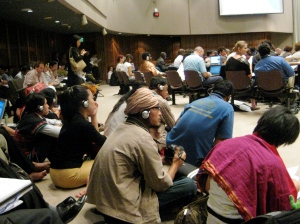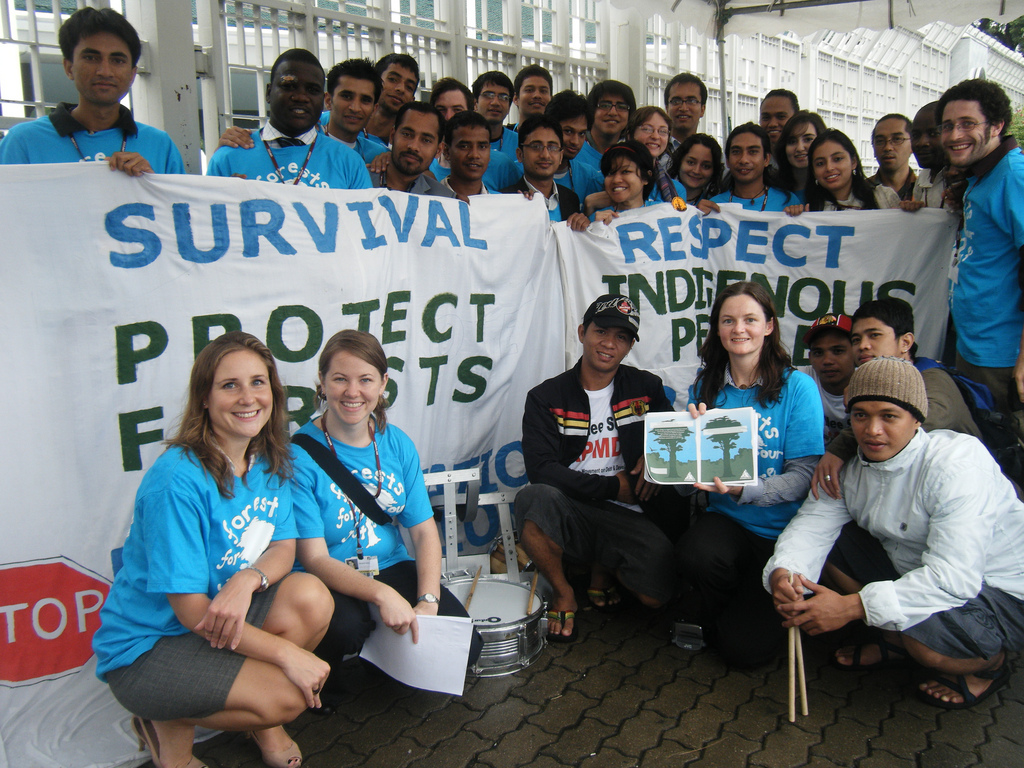By Juan Carlos Soriano
Every living person on this planet depends on forests for our survival, and the 60 million indigenous people who live in forests worldwide have been their primary guardians. An agreement on reducing emissions from deforestation and forest degradation (REDD) under the climate negotiations will affect the rights of indigenous peoples.
 Currently the language of the negotiating text on REDD is vague; “Forest” can be interpreted as “monocrop plantations.” The “Right to participate” does not mean “Indigenous rights, as some are trying to say. This afternoon The Indigenous Environmental Network rejected having REDD as part of a climate agreement. They call for language in the text that acknowledge the UN Declaration on the Rights of Indigenous Peoples and the principles Free Prior and Informed Consent.
Currently the language of the negotiating text on REDD is vague; “Forest” can be interpreted as “monocrop plantations.” The “Right to participate” does not mean “Indigenous rights, as some are trying to say. This afternoon The Indigenous Environmental Network rejected having REDD as part of a climate agreement. They call for language in the text that acknowledge the UN Declaration on the Rights of Indigenous Peoples and the principles Free Prior and Informed Consent.
Despite the opposition, an agreement on a REDD mechanism is likely to be adopted in Copenhagen.
By Lauren Nutter
This morning as soon as we hit the conference center and felt the building energy of youth gather for an action our morning grogginess subsided. The youth in Bangkok hosted an action calling countries to sign onto a pledge and agree to protect forests and the rights on indigenous peoples in a climate agreement. We all put on our bright blue “forests for our future” t-shirts, pulled out our banners, and were even joined by a Thai student drum choir. We chanted loudly, and tried to stop every party member entering the center to ask if they would support the pledge. We were elated to have Papa New Guinea and Indonesia, among others, sign our petition.



